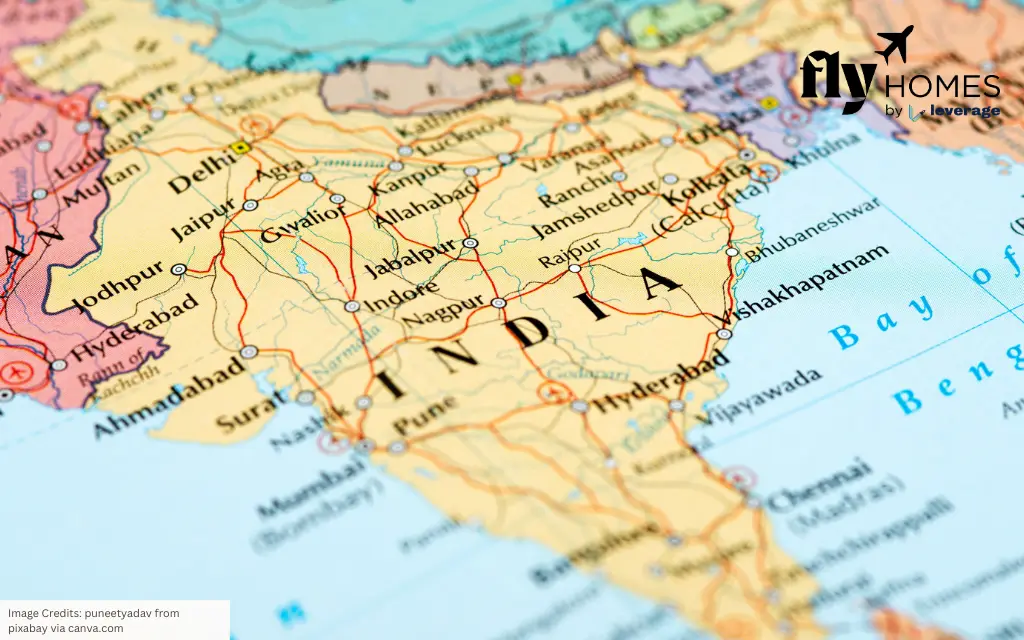Choosing the right course can be overwhelming, especially when you’re aiming for one of the toughest courses in India. These programs are known for their demanding syllabus, intense competition, and rigorous exams.
If you’re planning to study abroad, understanding the challenges faced by students in India can give you a new perspective. Whether it’s medicine, engineering, or law, each course requires dedication and perseverance. In this guide, we’ll explore the toughest courses in India, what makes them challenging, and how students overcome these difficulties.
Table of Contents
Toughest Courses in India
Choosing a career path is never easy, especially when faced with some of the most challenging courses in India. From intense academic pressure to rigorous entrance exams, these courses demand dedication and hard work. However, the rewards are often worth it, with promising career prospects and immense personal growth. If you’re considering a challenging yet fulfilling journey, here’s a detailed look at the toughest courses in India.
MBBS (Bachelor of Medicine, Bachelor of Surgery)

MBBS is often regarded as one of the toughest courses in India. It demands a strong understanding of medical sciences, long study hours, and practical clinical training. The rigorous curriculum covers subjects like anatomy, physiology, and pathology. With lakhs of students competing for limited seats through NEET, the admission process is highly challenging.
Despite its difficulties, the career rewards include saving lives, continuous learning, and gaining respect in society. Pursuing MBBS requires determination, patience, and resilience, making it a prestigious yet demanding field for aspiring medical professionals.
| Duration | 5.5 years (including internship) |
| Key Entrance Exam | NEET |
| Career Options | Doctor, Surgeon, Medical Researcher |
| Average Salary | INR 8-12 LPA |
Engineering (B.Tech)
Engineering is one of the most pursued and toughest courses in India. Students dive into complex subjects like mathematics, physics, and computer programming. Popular branches include Computer Science, Mechanical, Civil, and Electrical Engineering. The highly competitive JEE Main and JEE Advanced exams add to its difficulty.
Engineering students often juggle heavy coursework, practical labs, and projects. However, the course opens diverse career opportunities in sectors like IT, manufacturing, and energy. For those passionate about innovation and technology, it’s a challenging yet rewarding career path.
| Duration | 4 years |
| Key Entrance Exam | JEE Main, JEE Advanced |
| Career Options | Engineer, Developer, Technologist |
| Average Salary | INR 5-10 LPA |
Chartered Accountancy (CA)

Chartered Accountancy is undoubtedly one of the toughest courses in India, especially in the finance sector. The course involves clearing three difficult levels: CA Foundation, Intermediate, and Final. Students undergo articleship training, gaining practical knowledge in auditing, taxation, and corporate finance.
With a challenging pass percentage, CA requires dedication, analytical skills, and patience. After qualifying, CAs enjoy excellent career opportunities in financial consulting, investment banking, and corporate leadership. For those with a knack for numbers and financial strategy, the CA journey is demanding but highly rewarding.
| Duration | 4-5 years |
| Key Entrance Exam | CA Foundation, Intermediate, Final |
| Career Options | CA, Financial Analyst, Auditor |
| Average Salary | INR 10-20 LPA |
Law (LLB)
Pursuing Law in India is a challenging academic journey. Recognized as one of the toughest courses in India, it requires strong logical reasoning, analytical thinking, and persuasive communication. Law students study constitutional, criminal, and corporate laws.
Exams like CLAT and LSAT are gateways to top law universities. Practical learning through moot courts and internships is essential. While it demands consistent effort and legal acumen, a law degree opens career opportunities as lawyers, legal advisors, or judges. Passion for justice and critical thinking are key to thriving in this field.
| Duration | 3-5 years |
| Key Entrance Exam | CLAT, LSAT |
| Career Options | Lawyer, Legal Advisor, Judge |
| Average Salary | INR 6-12 LPA |
Also Read:
- Toughest Courses in the World [Updated 2025]
- Pharmacy Jobs Abroad for Indians: Top Countries & Career Opportunities
Architecture (B.Arch)

Architecture is considered one of the toughest courses in India due to its combination of creativity and technical knowledge. Students learn to design functional, aesthetic buildings while tackling complex subjects like structural engineering and environmental planning. Entrance exams like NATA and JEE Main Paper 2 are highly competitive.
Additionally, students spend long hours on design projects and practical training. Graduates can pursue careers as architects, urban planners, or interior designers. With constant innovation in construction and sustainability, architecture offers a fulfilling and dynamic career path.
| Duration | 5 years |
| Key Entrance Exam | NATA, JEE Main Paper 2 |
| Career Options | Architect, Urban Planner, Designer |
| Average Salary | INR 7-15 LPA |
Pharmacy (B.Pharm)
A Bachelor of Pharmacy (B.Pharm) is one of the toughest courses in India for students interested in the medical and pharmaceutical sectors. The curriculum involves studying pharmaceutical chemistry, pharmacology, and medicinal technology. It requires both theoretical learning and hands-on practical training in labs.
Entrance exams like GPAT further add to the challenge. Graduates can work as pharmacists, researchers, or drug safety officers. Despite the demanding coursework, the course is rewarding, offering opportunities in pharmaceutical companies, hospitals, and regulatory agencies.
| Duration | 4 years |
| Key Entrance Exam | GPAT, State Exams |
| Career Options | Pharmacist, Researcher, Quality Analyst |
| Average Salary | INR 6-10 LPA |
Management (MBA)

An MBA (Master of Business Administration) is widely known as one of the toughest courses in India for aspiring business leaders. Admission to top B-schools requires clearing exams like CAT, XAT, or GMAT, which are highly competitive. The course covers finance, marketing, operations, and leadership.
Intense case studies, group discussions, and internships test a student’s strategic thinking. An MBA opens doors to leadership roles in multinational corporations, startups, and financial firms. Though the course is rigorous, it provides immense career growth and earning potential.
| Duration | 2 years |
| Key Entrance Exam | CAT, XAT, GMAT |
| Career Options | Manager, Consultant, Entrepreneur |
| Average Salary | INR 12-25 LPA |
Design (NID/NIFT)
Design is a demanding and competitive field, making it one of the toughest courses in India. Institutions like NID and NIFT offer courses in fashion, communication, and industrial design. Students undergo rigorous training in creativity, practical skills, and project management. The entrance exams assess design aptitude and artistic ability.
Constant innovation, creative problem-solving, and adaptability are required. Despite the challenges, the design industry offers diverse career paths in fashion houses, media companies, and product design firms. For creatively inclined students, it’s a highly fulfilling choice.
| Duration | 4 years |
| Key Entrance Exam | NID DAT, NIFT Entrance |
| Career Options | Fashion Designer, Product Designer |
| Average Salary | INR 6-12 LPA |
Civil Services

Civil Services is one of the most respected yet toughest courses in India. Aspiring candidates need to clear the UPSC Civil Services Exam, which has an extensive syllabus covering subjects like history, polity, and current affairs. The exam process includes Prelims, Mains, and an Interview.
Only a small percentage qualify, making it one of the most competitive exams. Successful candidates serve as IAS, IPS, or IFS officers, contributing to policy-making and administration. Dedication, patience, and strong analytical thinking are key to excelling in this challenging career.
| Duration | Variable |
| Key Entrance Exam | UPSC Civil Services Exam |
| Career Options | IAS, IPS, IFS Officer |
| Average Salary | INR 15-20 LPA |
Pilot Training
Pilot training is another one of the toughest courses in India. It involves both theoretical studies and practical flight training. Aspiring pilots must clear DGCA exams and undergo rigorous physical and mental assessments. The training covers aviation regulations, navigation, and aircraft systems.
Becoming a licensed commercial pilot demands strong decision-making skills and calmness under pressure. Despite the difficulties, it’s a prestigious and high-paying career. Graduates often work with commercial airlines or pursue a career in the Air Force, enjoying the thrill of flying.
| Duration | 2-3 years |
| Key Entrance Exam | DGCA Exams |
| Career Options | Commercial Pilot, Air Force Pilot |
| Average Salary | INR 20-30 LPA |
Why Are Some Courses Considered Tough?
Choosing a career path is exciting, but some courses in India are known for their difficulty. These courses push students to their limits, testing their academic knowledge, practical skills, and emotional resilience. Understanding why they are tough can help you prepare better. Here’s why some courses are considered the toughest in India:
- Vast Syllabus: Courses like MBBS and Engineering cover extensive topics in a limited time.
- Competitive Exams: Exams such as NEET, JEE, and CAT have intense competition with limited seats.
- Practical Application: Fields like medicine, architecture, and law demand hands-on experience and real-world problem-solving.
- Long Study Duration: Courses like CA and MBBS involve years of rigorous study and practice.
- Emotional and Physical Stress: High academic expectations and pressure to succeed can be overwhelming.
Also Read:
- GMAT Exam Fees in India: Everything That You Need to Know
- Average Salary in Switzerland for Indian Students: Salaries by Experience, Industry and Education
Challenges Faced by Students in Tough Courses
Pursuing one of the toughest courses in India can be rewarding, but it also comes with its share of challenges. The pressure to excel, manage time effectively, and stay mentally healthy can be overwhelming. Let’s explore the key challenges students often face and how they can navigate through them.
1. Academic Pressure
Students in demanding courses like MBBS, Engineering, or CA face intense academic pressure. The vast syllabus, frequent exams, and continuous assessments can feel exhausting. It’s essential to stay organized, break down tasks, and seek help when needed.
2. Time Management
Managing time effectively is a major challenge. With lectures, assignments, and practical work, students often struggle to keep up. Creating a well-structured timetable, prioritizing tasks, and avoiding procrastination can help. Using productivity tools or apps can also make scheduling easier.
3. Mental Health Concerns
The constant competition and fear of failure can impact students’ mental health. Feelings of anxiety, stress, and burnout are common. Seeking support from counselors, practicing mindfulness, and maintaining a positive social circle can make a difference.
4. Financial Strain
Courses like pilot training or MBBS can be quite expensive, putting a financial burden on students and their families. Many students rely on loans or scholarships. Part-time jobs and internships can also help manage expenses. Researching scholarships and financial aid programs early on is a smart move.
5. Lack of Work-Life Balance
Balancing academic responsibilities with personal life is tough. Long hours of study leave little time for hobbies or relaxation. To avoid burnout, students should take short breaks, engage in physical activities, and ensure proper sleep. Developing hobbies and maintaining social connections can also bring much-needed relaxation.
How to Prepare for the Toughest Courses in India?
Preparing for the toughest courses in India can feel overwhelming. But with the right strategy and mindset, you can succeed. Whether you’re studying for an MBBS, engineering, or civil services, staying organized and focused is essential. Let’s look at some practical tips to help you achieve your goals.
1. Understand the Syllabus
Before you begin, go through the entire syllabus of your course or entrance exam. Knowing what subjects and topics are covered will help you prioritize your study time. Break down the syllabus into manageable sections and allocate study hours accordingly.
2. Time Management
Managing your time effectively is crucial. Create a detailed timetable that covers all subjects while allowing time for revision. Focus on tougher subjects in your most productive hours. Don’t forget to include short breaks to avoid burnout.
3. Take Coaching Classes
For courses like MBBS, engineering, or CA, coaching classes can be beneficial. Reputed coaching centers provide expert guidance, study material, and mock exams. They also offer structured learning environments. However, balance self-study with coaching classes for the best results.
4. Stay Consistent
Consistency is key when tackling challenging subjects. Make a habit of studying daily, even if it’s for shorter durations. Regular revision is essential to retain information. Practice previous years’ question papers and attempt mock tests to build confidence.
5. Maintain Mental Health
While academic success is important, so is your well-being. Practice mindfulness exercises like yoga or meditation to manage stress. Engage in physical activities or hobbies to recharge your mind. Take breaks when needed and stay connected with supportive friends and family.
Is It Worth Pursuing a Tough Course in India?
Choosing one of the toughest courses in India can be daunting, but it also comes with several long-term benefits. While the rigorous curriculum and intense competition may challenge you, the rewards often make the effort worthwhile. Let’s explore why it might be worth taking on the challenge.
1. High Salary Potential
Graduating from demanding fields like medicine, engineering, or finance often leads to well-paying jobs. Doctors, engineers, and CAs are among the highest earners in India. Multinational companies and reputed firms seek skilled professionals, offering lucrative packages and attractive perks.
2. Job Security
Tough courses often lead to careers in sectors with constant demand. Healthcare, engineering, law, and finance are fields where expertise is always valued. With specialized knowledge, you stand a better chance of maintaining job security even in uncertain economic times.
3. Global Recognition
Degrees from India’s prestigious institutions like IITs, IIMs, AIIMS, and NLSIU hold significant value globally. Many Indian graduates pursue international careers or further studies abroad. The rigorous training you receive during these courses equips you with globally relevant skills, making you a competitive candidate in the global job market.
4. Personal Growth
Tough courses are not just about academic learning. They cultivate resilience, time management, problem-solving abilities, and leadership qualities. Pushing through challenges builds confidence and enhances your capacity to handle stress.
5. Career Satisfaction
Achieving success in a challenging field brings immense pride and satisfaction. Knowing that your hard work has paid off and you are making a meaningful contribution to society can be incredibly fulfilling. Careers in healthcare, law, and civil services, for example, allow you to make a difference in people’s lives, adding a sense of purpose to your work.
Choosing the toughest course in India is a big decision. It requires dedication, patience, and a lot of hard work. But with the right mindset and preparation, success is within your reach. If you’re planning to study abroad or explore global career opportunities, these qualifications will serve as a strong foundation. Stay focused, believe in yourself, and embrace the journey!
Hope you liked reading our blog on the toughest courses in India. For a stress-free stay during your study abroad adventure, choose Fly Homes. Call 1800572118 to reserve your ideal accommodation abroad with ease.
FAQs
The toughest courses in India include engineering, medical, chartered accountancy, law, and architecture. Exams like IIT-JEE, NEET, and UPSC are also challenging and require dedicated preparation.
Yes, Chartered Accountancy (CA) is considered tougher than engineering due to its low pass percentage and challenging exams. However, difficulty can vary depending on your aptitude and interest.
Electrical Engineering and Mechanical Engineering are often considered the toughest due to their complex subjects and practical applications. Computer Science can also be challenging for coding enthusiasts.
Both are difficult in their own ways. UPSC tests general knowledge and analytical thinking, while NEET focuses on biology, physics, and chemistry. UPSC has a lower success rate, making it tougher.
Medical courses like MBBS are tough due to extensive theory, practical training, and long study hours. It requires dedication and years of hard work.
It depends on the course. MBBS takes 5.5 years, CA takes around 4-5 years, and Engineering usually takes 4 years. Law and architecture can take 5 years.
Yes, many students crack tough exams through self-study. However, coaching can provide structured guidance, especially for exams like JEE, NEET, or UPSC.
Yes, scholarships like INSPIRE, NTSE, and Merit-cum-Means are available for engineering, medical, and other tough courses. Universities also offer merit-based scholarships.
Yes, Law requires extensive reading, understanding of legal frameworks, and practical application. CLAT and AILET are tough entrance exams for law schools.
CA (Chartered Accountancy), CFA (Chartered Financial Analyst), and CS (Company Secretary) are among the toughest courses for commerce students in India.
Follow Us on Social Media




























